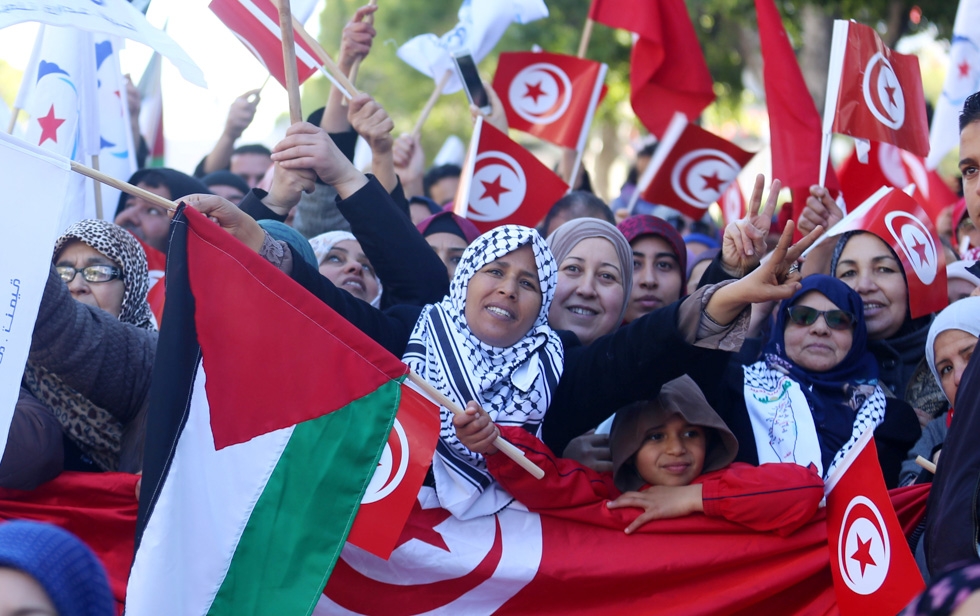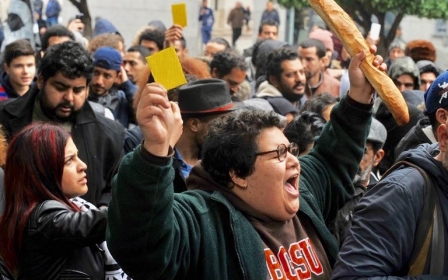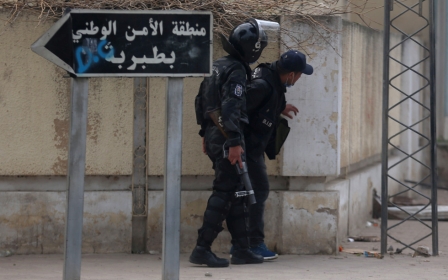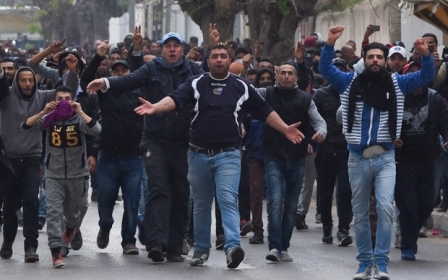Tunisians mark Arab Spring uprising with more protests

Tunisians marked the seven-year anniversary of the beginning of the Arab Spring with continued protests amid a wave of unrest over persisting poverty and unemployment.
The North African country is seen as having had a relatively smooth democratic transition since the 14 January, 2011 toppling of President Zine El Abidine Ben Ali after 23 years in power.
But seven years later, anger has risen over new austerity measures after a year of rising prices, with protesters again chanting the 2011 slogans of "Work, Freedom, Dignity".
On Sunday, hundreds gathered in the capital Tunis, responding to calls to protest from a powerful labour union and several political parties.
Security was tight as protesters poured through checkpoints into the capital's Habib Bourguiba Avenue, which was the epicentre of the 2011 protests.
Demonstrators chanted against "poverty and hunger" as they marched up the avenue, accusing "thieves" of having stolen the country.
A wave of peaceful protests and night-time unrest hit cities and towns across the country this past week, after hikes in value-added tax and social security contributions introduced in early January.
The interior ministry says it has arrested more than 800 people suspected of taking part in violence, theft and looting since the start of the unrest.
Protester demands have included a review of the 2018 austerity budget and more efficient measures to fight enduring corruption.
On Saturday, the government announced new measures to aid poor Tunisians after crisis talks were held with trade unionists and political parties in an attempt to appease protesters.
Minister of Social Affairs Mohamed Trabelsi told reporters in Tunis on Saturday that an extra $70m in aid will go towards helping poor citizens, benefiting “about 250,000 families.”
"It will help the poor and middle class," he added.
'Fall of the budget'
On Sunday, more than 1,000 people gathered outside the offices of the UGTT union.
"The people want the fall of the 2018 budget," some chanted, echoing 2011 calls for the fall of the regime.
"Shame! Prices have risen too much," a demonstrator said.
Hundreds more gathered after Ennahdha, an Islamist party that is part of the ruling coalition, and Prime Minister Youssef Chahed's Popular Front party also called for demonstrations.
President Beji Caid Essebsi was to mark the anniversary by attending the opening of a youth centre in the working-class Tunis suburb of Ettadhamen, which saw night-time clashes between young protesters and police this week.
Tunisia's 2011 revolt was sparked by the self-immolation of a fruit seller in desperation at police harassment and unemployment.
On 14 January, 2011, Ben Ali fled to Saudi Arabia, inspiring similar revolts across the region in what became known as the Arab Spring.
Tunisia has been praised for its steps towards democracy in the years since, compared to countries now wracked by war such as Syria or Yemen.
A new constitution was adopted and legislative and presidential polls held in 2014.
But authorities have struggled to redress Tunisia's economy, including after deadly militant attacks in 2015 dealt a major blow to the key tourism sector.
Seven years on, youth unemployment is more than 35 percent, according to the International Labour Organisation.
New MEE newsletter: Jerusalem Dispatch
Sign up to get the latest insights and analysis on Israel-Palestine, alongside Turkey Unpacked and other MEE newsletters
Middle East Eye delivers independent and unrivalled coverage and analysis of the Middle East, North Africa and beyond. To learn more about republishing this content and the associated fees, please fill out this form. More about MEE can be found here.




